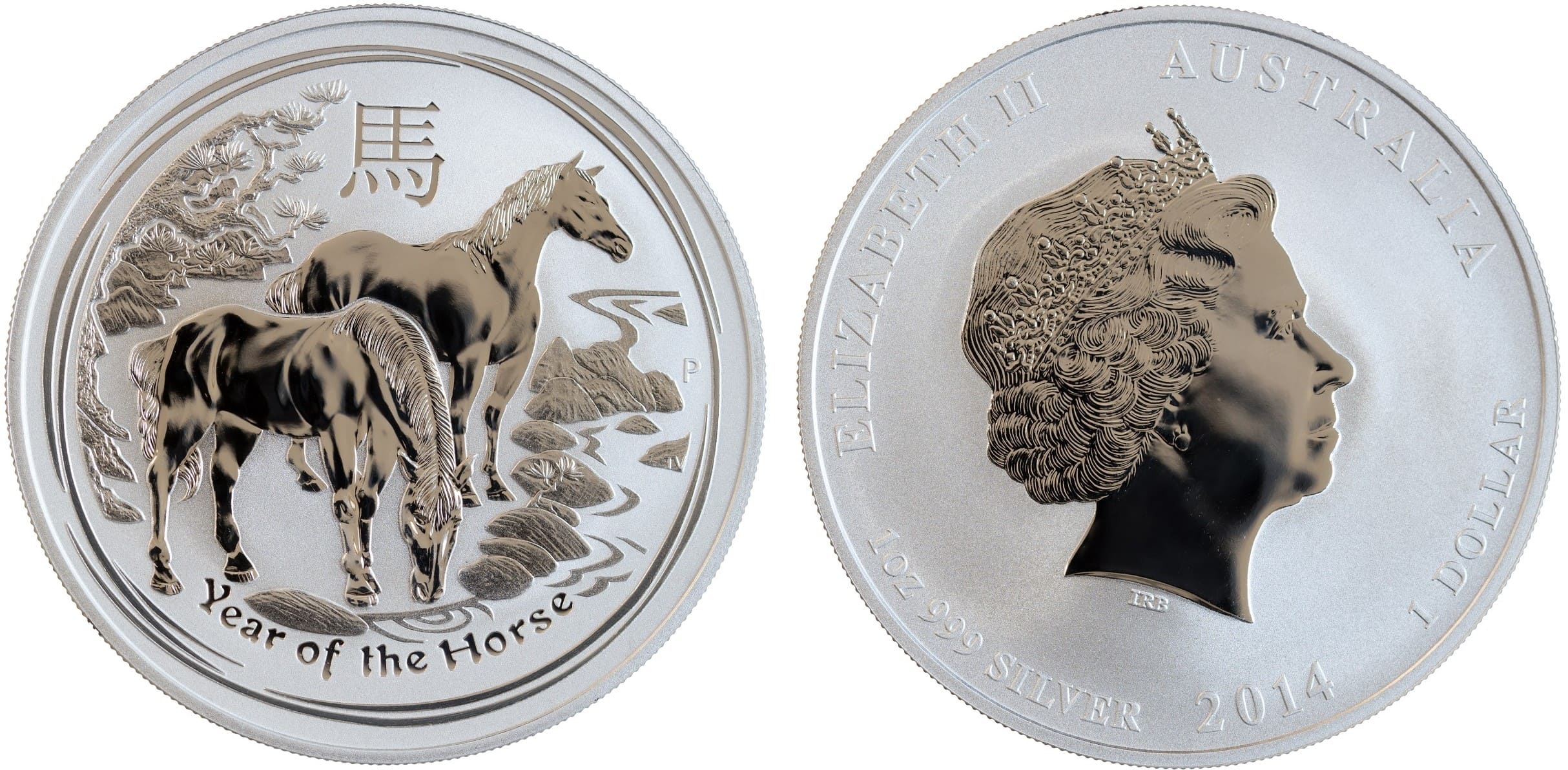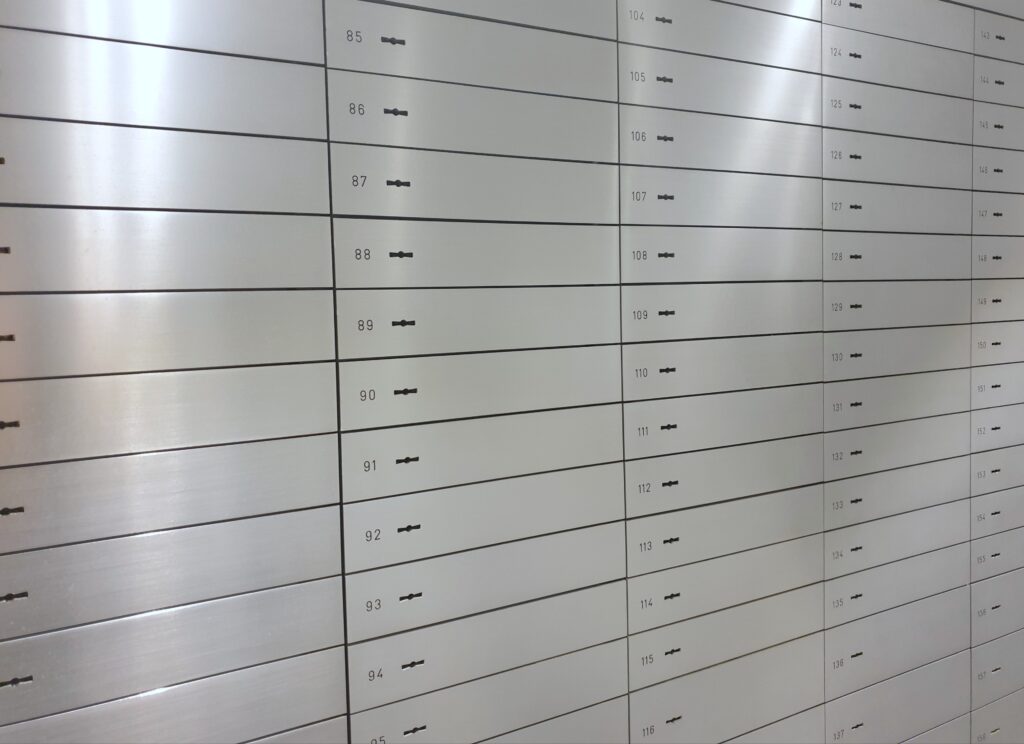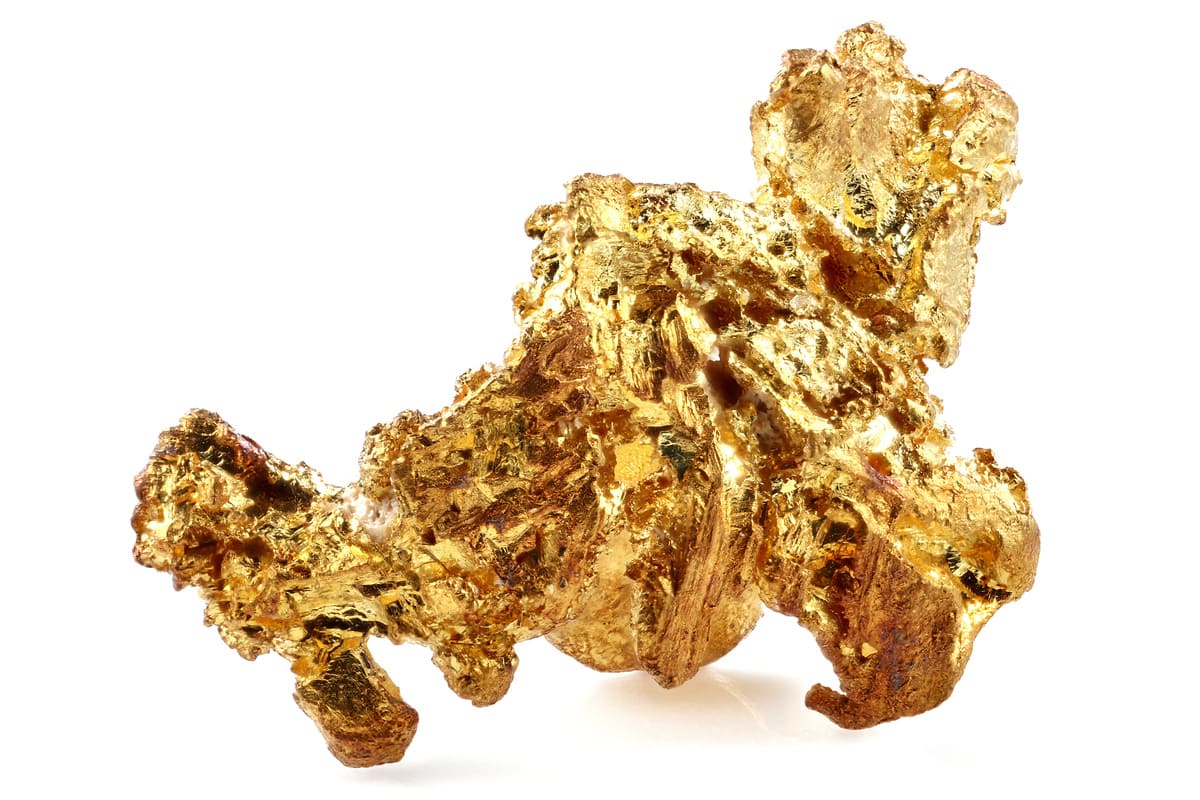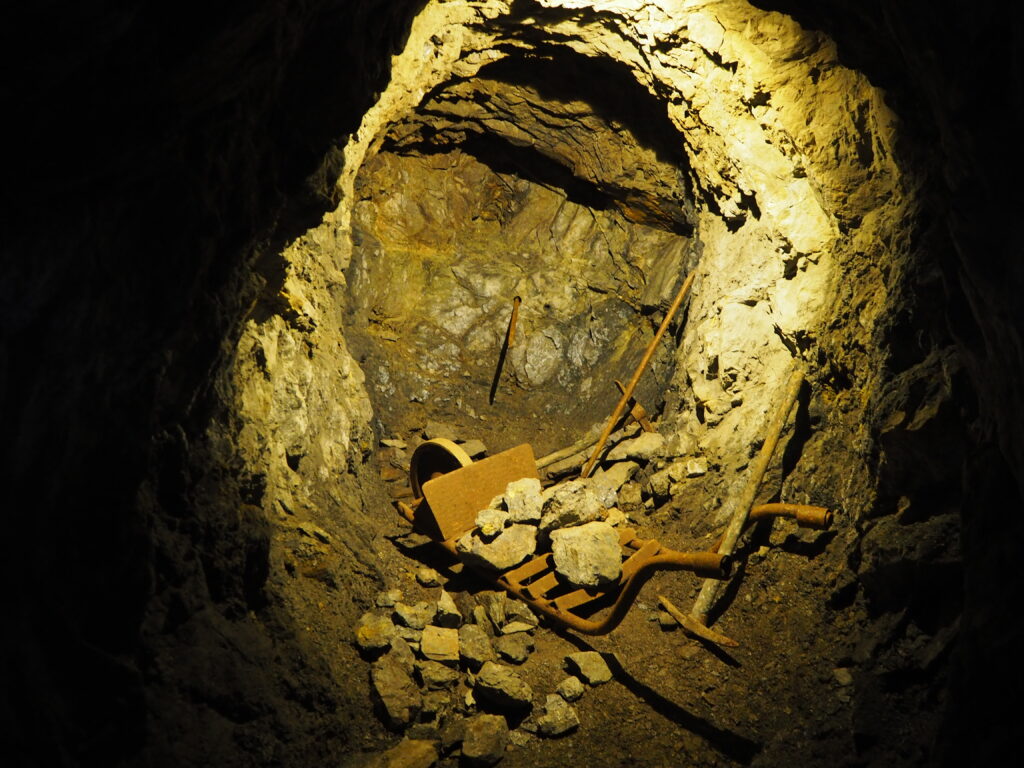Safe deposit box bequests
Additional information > Prevailing conditions for value storage in Switzerland and Liechtenstein > Safe deposit box bequests upon the death of the holder
What happens to a safe deposit box when a death occurs?
Safe deposit boxes are ideal for securing private assets, cash and important documents. Many people use the facilities of specialist providers because they find them more discreet than bank safe deposit boxes. Access is restricted to the tenant or their authorised representative. Relatives and heirs should be made aware of safe deposits in advance so they can secure access if the owner should die or become incapacitated. Testators should make early arrangements.
Nowadays, safe deposit boxes are often used as secure storage for precious metals such as gold coins and bars. These valuable assets can act as a hedge against inflation, be used to support retirement plans, or serve as a vital nest egg put away for a rainy day. Owners often plan to pass on such assets to their children or grandchildren, which is why many safe deposit box users seek long-term rental agreements.
However, you may wish to keep the existence of a safe deposit box secret until after your death, in which case you have the option of making the disclosure in your will, whereupon the contents will become part of your estate. If your last will and testament makes no particular arrangements, then your stored assets will be subject some form of legally prescribed inheritance procedure. However, the details of such an arrangement will vary according to the country, as you can read in the paragraph below. Apart from making a will, there are also other ways to inform your heirs about the existence of a safe deposit box. To facilitate access in these circumstances, testators should always deposit a key and ensure relevant information is available. Beyond this, there are other important points for the donor and heirs to consider with regard to a safe deposit box inheritance.
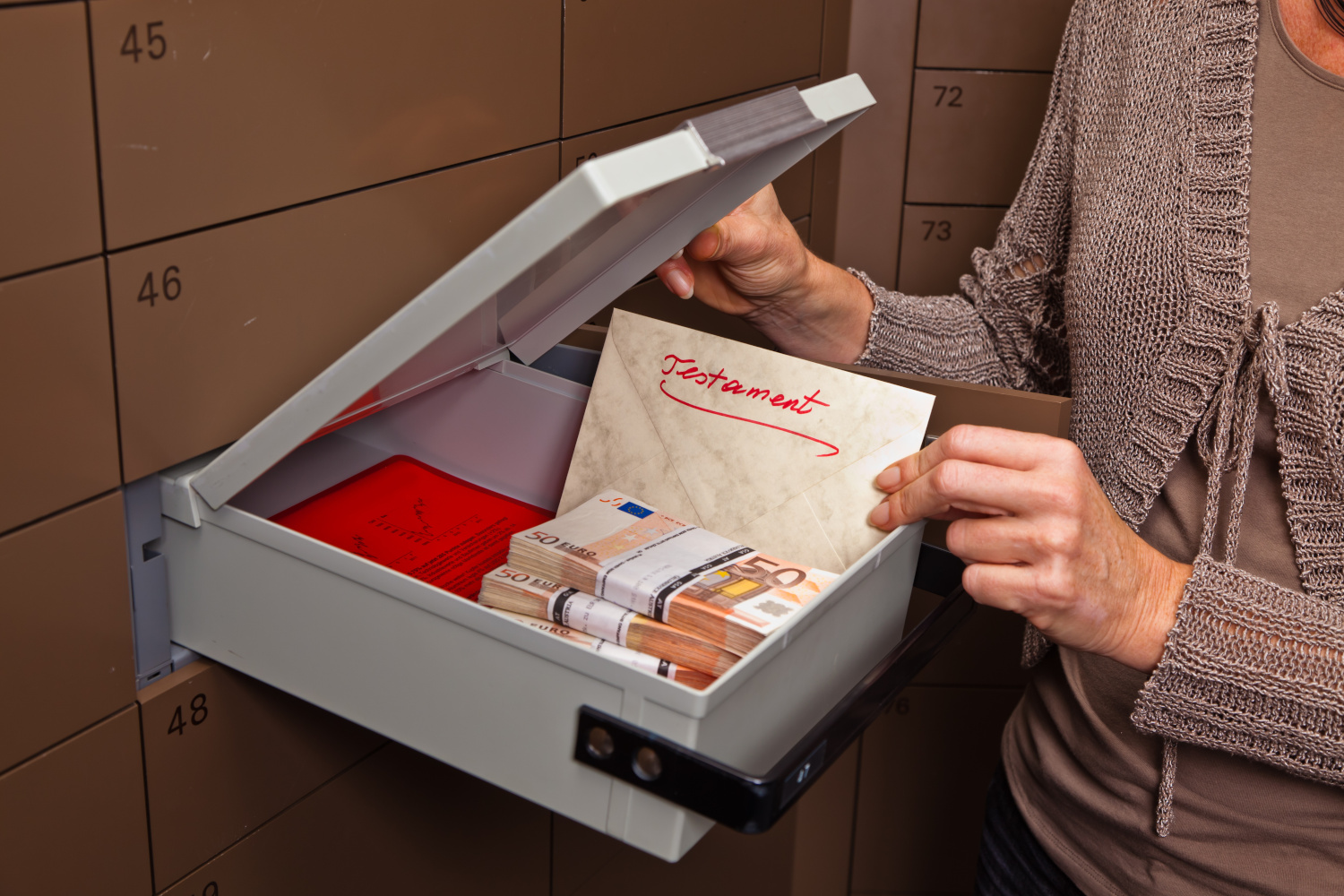
© Gina Sanders - stock.adobe.com
Legal provisions applicable to safe deposit box providers
Regardless of whether you have a bank safe deposit box or a private safe deposit box facility with a specialist storage company such as Swiss Gold Safe in Switzerland or Liechtenstein – once your safe deposit box provider learns of the death of the holder, all access is automatically blocked. This is a standard measure designed to prevent unauthorised persons from gaining access to the safe deposit contents. The legal provisions that apply in the event of death stipulate that the heirs to the stored assets must first provide proof of their entitlement. Without this evidence, no institution is allowed to grant access to the locker facility. The safe deposit box will remain untouched throughout this clarification procedure to ensure the stored assets remain secure.
A certificate of inheritance or an inheritance tax certificate is required, which the heirs can obtain by applying to the appropriate estate administration authority for the canton or municipality. Because this document determines who is to inherit the deceased person’s assets, it usually takes several weeks to issue the certificate.
Another stipulation will be that only the people named in the inheritance certificate, or the community of heirs listed therein, will be granted permission to access the safe deposit box. However, an individual heir or members of the community of heirs can also appoint a trusted person to act on their behalf under an appropriate power of attorney. In this event, that authorised person is then permitted to access the safe deposit box and make decisions in the interests of the heirs. It is important to understand that such an important authorisation must be certified by a notary before it can be recognised by the storage provider.
The practical requirement here is that the heirs or their authorised representative should have a safe deposit box key. The storage company won’t usually keep any spare or reserve keys, and will supply the tenant with all existing keys (usually two) when the safe deposit facility is set up. This is precisely the approach adopted by Swiss Gold Safe. The client is then responsible for the safekeeping of all safe deposit box keys. There are various ways to achieve this. For example, the keys can be kept hidden in a safe place or deposited with a notary. Many lawyers, notaries or security companies also offer special key deposits. In the event of a total loss of all keys, the only option is to engage a specialist locksmith service to break into the safe deposit.
Provisions applicable to foreign language documents
The inheritance law applicable is that which applies in the client’s place of residence (see paragraph below). In practical terms, that means the required documents such as the death certificate and inheritance certificate are likely to be drawn up in the issuing authority’s national language. However, before the heirs can actually have access to the safe deposit box, the storage provider must be able to confirm acceptance of this documentation. Such acceptance requires that the legally binding texts these documents contain are clear and unambiguous.
So for reasons of clarity, the safe deposit box provider may request a written translation of any foreign language documents. The resultant translation must then be certified by a notary. All prospective heirs should take this into account because this process will inevitably require a certain amount of processing time. Upon request, the safe deposit provider will confirm which foreign language documents they will recognise without translation.
What you must consider upon the death of a safe deposit box holder
During their own lifetime, anyone who plans to offer the contents of their safe deposit box as a bequest to their heirs should take steps to ensure that the distribution and use of their assets is not decided by the authorities and courts. Whenever there is no will and no supporting information about the safe deposit box, the legal regulations about inheritance automatically apply. The associated procedures can then extend over a long period of time. Even when an inheritance is absolutely clear and undisputed, months can pass between the death and the subsequent issue of a certificate of inheritance. And in the event of any ambiguities, the waiting time for an inheritance certificate will then inevitably be far longer.

© Joe - pixabay.com
Where the assets stored in the safe deposit box need to be made available to the heirs at short notice, it is always better to plan for this in advance. This can be achieved, for example, via a power of attorney that is stored with the safe deposit box provider (see next section). As an alternative to what may often be a lengthy will, the testator and heirs can also decide to draw up an inheritance contract together that will be binding upon both parties. However, unlike the last will and testament of a deceased person, this kind of contract cannot be subsequently altered unilaterally.
It is also possible to arrange to hand over part of the stored assets, or the entire inventory, to the testator’s beneficiaries during his or her lifetime. For example, the safe deposit box contract could be cancelled and then reopened in the name of the new owner, or an additional safe deposit box could be rented. This could be achieved using a private, bank-independent safe deposit box in Switzerland or, alternatively, a bank-independent safe deposit box in Liechtenstein.
A power of attorney filed with your safe deposit box provider
Safe deposit box holders can also allow people they trust to access their safe deposit box. At Swiss Gold Safe, this can be arranged using a special authorisation form which is then stored with the company. This gives spouses, family members and/or other trusted persons the authority to act in all safe deposit box matters – including arranging storage and removals.
It’s important to understand that such a power of attorney cannot be created without the knowledge of the person(s) you trust. In order to be valid, this authorisation must be personally signed by all those people listed on the form. In addition, each must also supply certified proof of identity. This power of attorney remains valid even if the contracting client should die, be declared missing, become bankrupt, or lose capacity to act. However, this power of attorney does not negate the requirement to provide a death certificate and certificate of inheritance in the event of death, because this form cannot override these other legal provisions. Unlike the procedure for releasing safe deposit box contents, the safe deposit holder can revoke this authorisation at any time.
Is the procedure for safe deposit box inheritances the same worldwide?
Inheritance law is subject to different rules and legislation all over the world. Even within the same country, the requirements can vary between one administrative region and another. That’s why the inheritance law which applies is generally that which applies in the client’s home jurisdiction. So the location of the safe deposit box facility is not a crucial factor. For example, if a client living in Vienna maintains a safe deposit box in Switzerland, then the Austrian inheritance laws applicable in the relevant regional district where they live will automatically apply.
- NB: Do you have precious metal holdings kept in allocated and segregated storage? Inheritance matters in that environment are treated a little differently to inheritance assets held in a safe deposit box. You can find out more about this in our article about heirs and inheritances held in allocated and segregated storage.
Your safe deposit box in the event of incapacity
Safe deposit box assets should be handed once the holder is deceased, but that’s not the only circumstance – the same applies if the holder loses the capacity to make decisions. This can arise, for instance, as a result of accident or illness. However, in reality, very few clients take precautions to guard against this situation. What makes matters worse is that the case law covering such events is often complex and usually requires the services of a lawyer who is familiar with the regulations applicable in the respective canton or national jurisdiction.
There is a general right of representation which applies on behalf of the spouse, and this also extends to include the management of a partner’s assets. The authorities generally treat the access to a safe deposit box, or the closure of this facility, as extraordinary asset management which requires extended consent. In Switzerland, the Child and Adult Protection Authority (KESB) has responsibility for family members and for marriage-type partnerships. A power of attorney deposited by the holder while they still have full mental capacity (see above) is undoubtedly the most practical solution.
Safe deposit box bequests in summary
- Once they learn of the death of a tenant, storage providers are then legally obliged to suspend access to their safe deposit box until the inheritance has been officially verified.
- Before they can gain access to a safe deposit box, heirs must first hold a valid inheritance certificate.
- Testators should bear in mind the issue of such documents takes several weeks or months, even when the inheritance position is absolutely clear.
- In principle, the applicable inheritance law is that which is in force in the client’s former main residence, even if the safe deposit box itself is in another country.
- Because safe deposit box providers rarely keep spare keys, heirs must have possession of an original safe deposit key. This could be deposited with a notary, for example.
- Testators should inform their relatives about the existence of their safe deposit box during their lifetime. This can be placed in a section of their will, covered by a power of attorney, or be the subject of an inheritance contract.
- Safe deposit box holders should also take precautions in the event of incapacity, because the clarification of legal representation can often be subject to complex case law.


